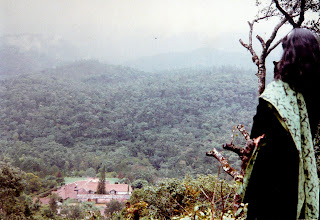Corruption, Punishment and Justice
Of late, any news about the corruption
in public life in India
is drawing much attention. Hitherto, most of us had resigned to our fates and
consoled ourselves believing that the institutionalized form of corruption is
here to stay and the so called intelligentsia can not do much about it. Thanks
to people like Anna Hazare, Vinod Rai, Julian Assange and innumerable
functionaries in various places like the judiciary, our pessimism is gradually
waning like snow in the sunshine.
What is probably desired in India is perhaps
not to introduce new laws but the implementation of the existing laws with a
heavy hand to ensure punitive action. Of
course, many modifications in existing laws may be required for this.
Last week, the hedge fund tycoon Raj
Rajaratnam of the Galleon Group who was convicted by a court in US for 11 years
in prison was also made to pay 63 Million US Dollars as penalties.
There are additional civil
penalties of US Dollar 97 Million also being claimed from him by the US Securities
and Exchange Commission. Personally, I
feel that similar penalties being charged on corrupt persons should be the
order of the day so that ill- gotten money can be best controlled.
It is very amusing to read about
bails being granted to corrupt officials who have amassed millions of rupees by
executing bonds of a few thousands of rupees. The news pertaining to a very
corrupt couple in the IAS is a case in point.
Anybody making ill-gotten wealth
should realize that neither can he enjoy the funds thus created nor can he breathe
fresh air outside the prison if he makes money by corrupt methods. His wealth
though invested in the names of family members should be confiscated by the
exchequer with which much developmental work can be undertaken. Justice delayed
tantamount to justice denied and hence the wheel of justice has to roll faster.
Let the government take a leaf
out of the above example of US
judicial system and come out with a Lokpal bill which should be welcomed by all
except the corrupt people in our public life.
My friend Jens Nordlunde, a Dane by birth and settled in Switzerland
recently wrote to me,
“I once read that,
although corruption is almost unknown in Denmark, that
in the 17th and 18th century it was widely spread. The
government made a law punishing corruption harshly, but
they also made sure that people not corrupted enforced this law.
It is a very
difficult problem to solve – but most important to solve it, for the people and
for the country. “
I cannot agree with him more.
Tripunithura,South India.
31st October 2011.




Comments